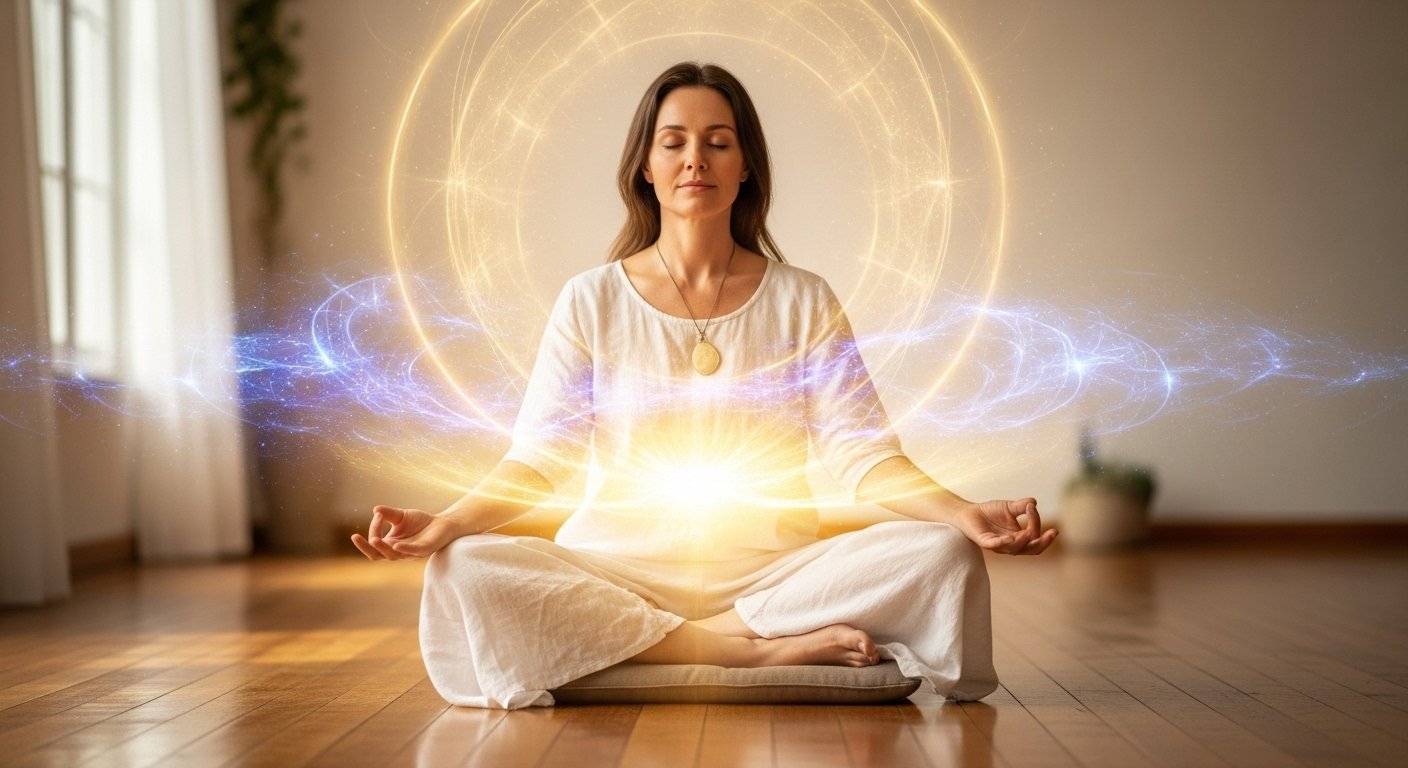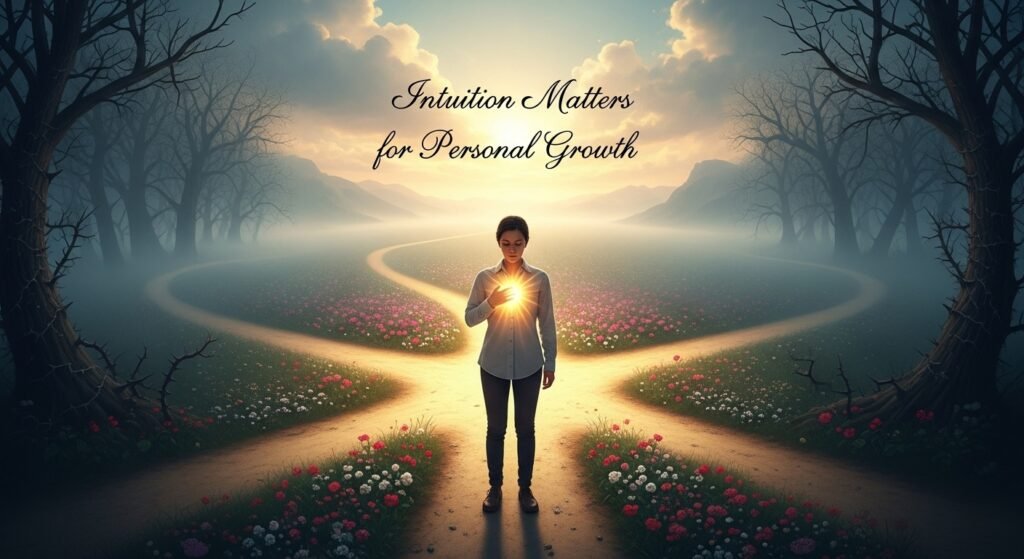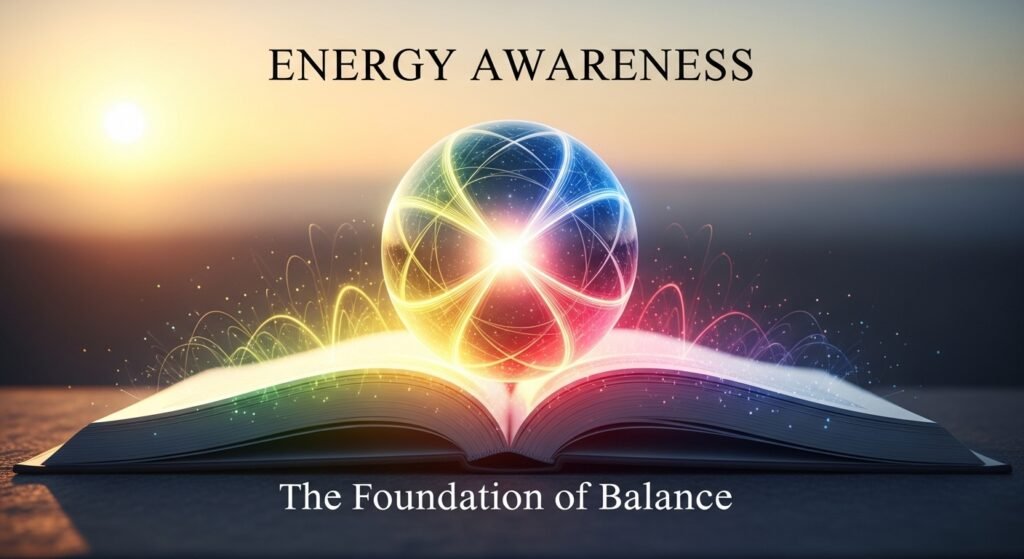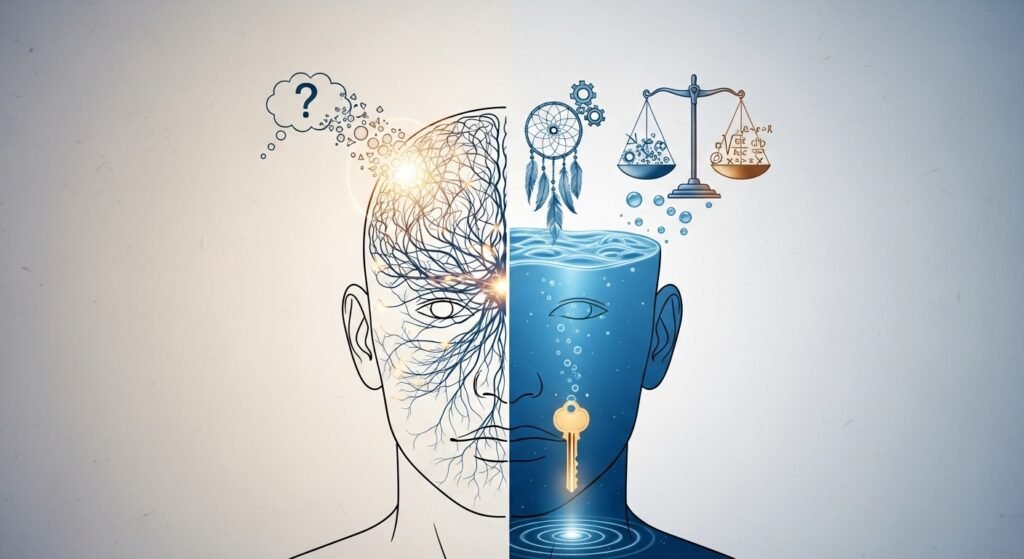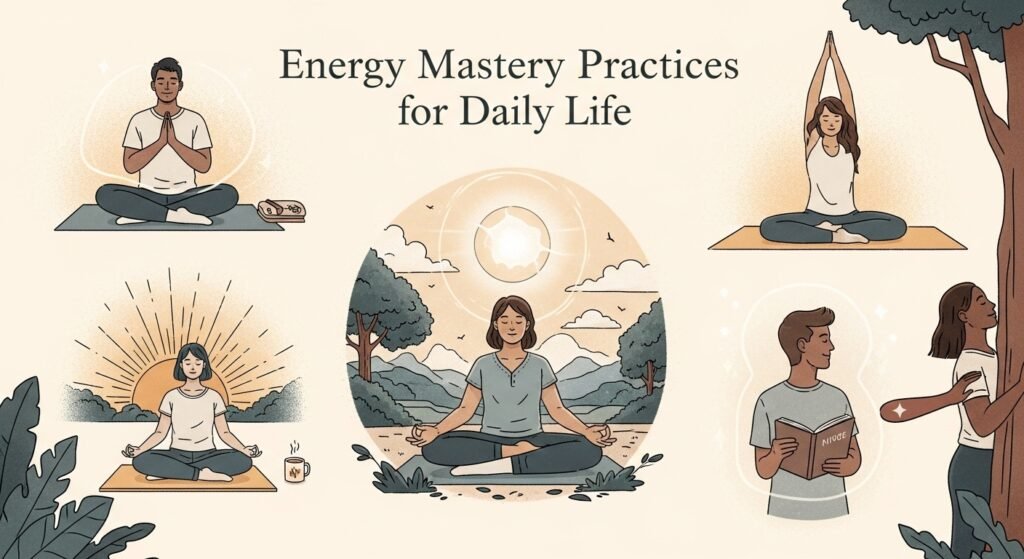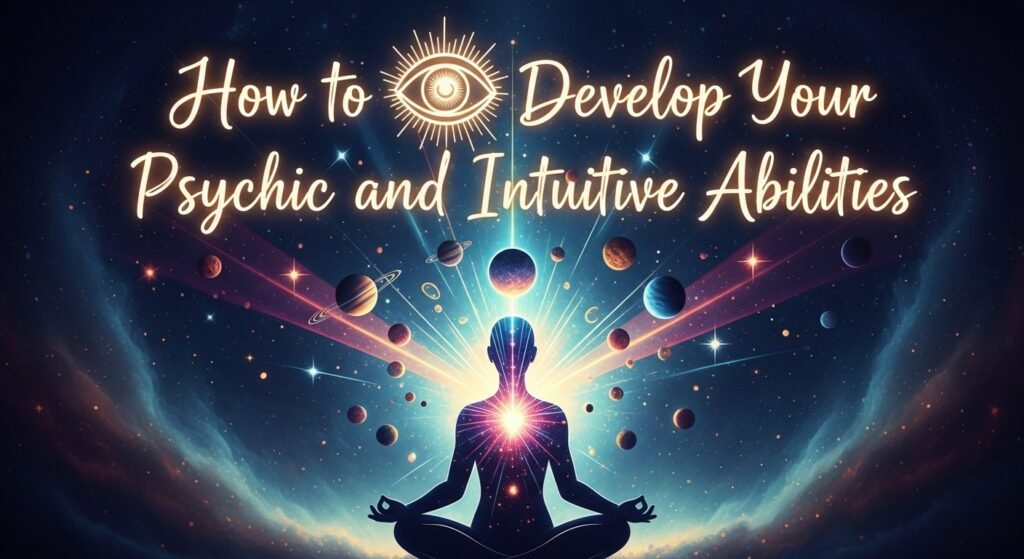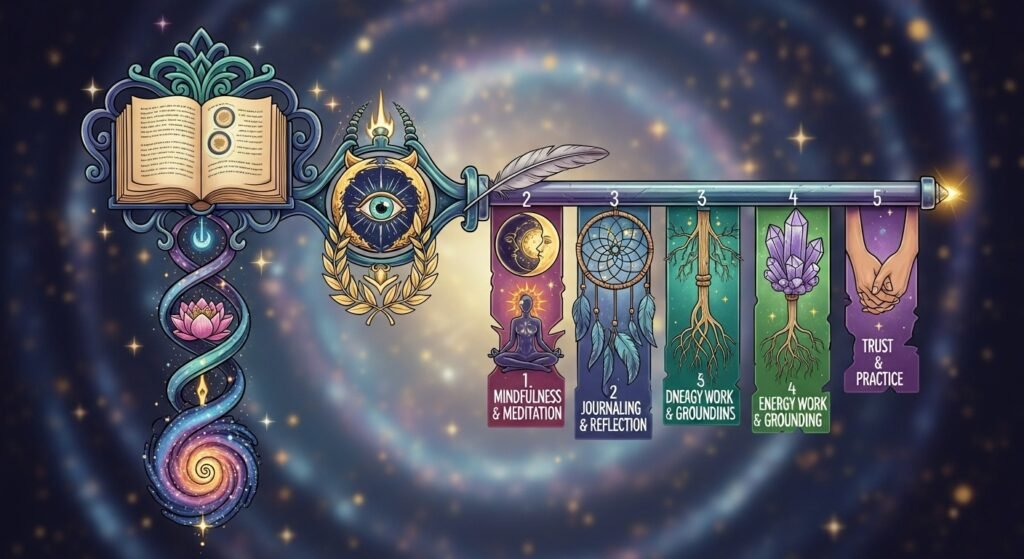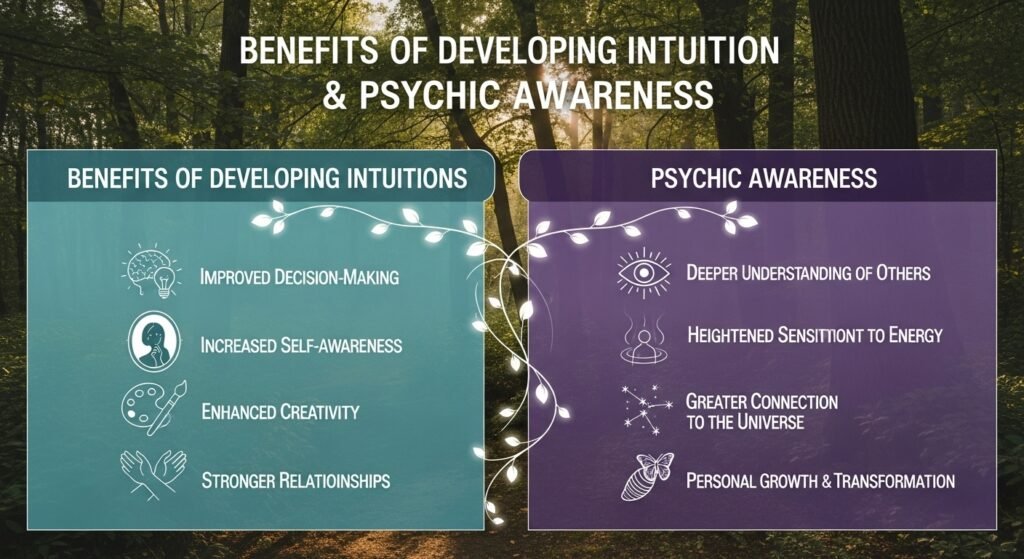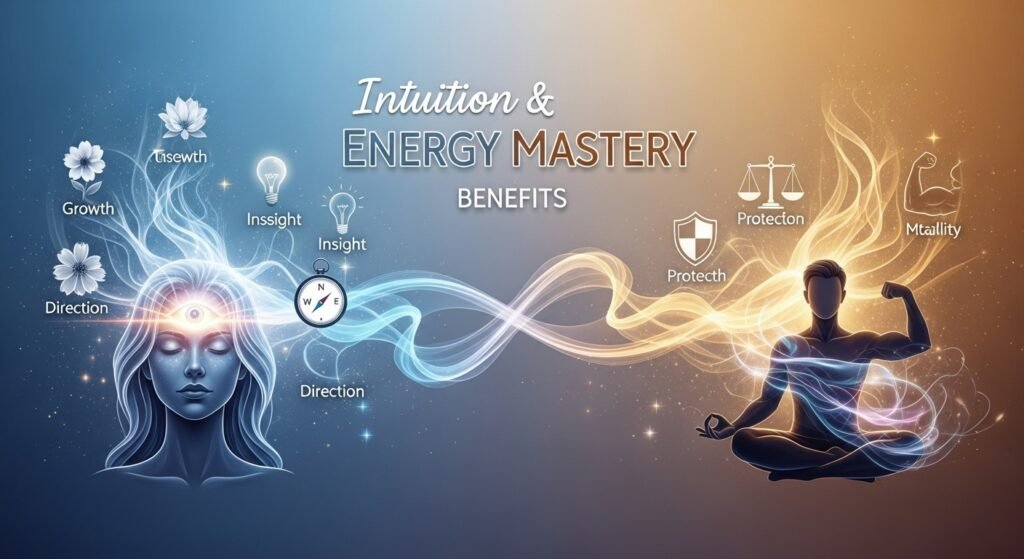Introduction
In today’s fast-paced world, many of us are searching for balance, clarity, and a deeper connection with ourselves. One of the most powerful yet overlooked tools for achieving this harmony is intuition. When combined with energy mastery practices, intuition can guide us toward better decisions, healthier relationships, and long-term personal growth. But how do we define intuition, and what role does energy awareness play in activating it? In this blog, we’ll explore practical methods to develop an intuitive mindset, share intuition knowledge examples, and reveal energy mastery practices that help you live a more grounded and balanced life.
🌟 What Is Intuition? (Define Intuition)
Intuition can be defined as the inner knowing or “gut feeling” that guides us without the need for conscious reasoning.
It is the ability to understand something instinctively, without relying on logic alone.
When we define intuition, we describe it as a bridge between the conscious and subconscious mind, tapping into deeper levels of awareness.
An intuitive mindset allows you to access insights beyond surface-level thinking.
This form of inner wisdom often manifests as sudden clarity, subtle nudges, or even strong feelings about a decision before you can explain why.
Unlike impulsive reactions, intuition is grounded in an alignment between your emotions, energy, and subconscious understanding.
🌿 Why Intuition Matters for Personal Growth
Developing intuition is more than just trusting gut feelings—it’s about aligning your inner wisdom with your external choices.
Here’s why it’s crucial:
- Better Decision-Making – Intuition helps you cut through overthinking and reach decisions with clarity.
- Deeper Self-Trust – By following your inner guidance, you build confidence in your ability to navigate life.
- Emotional Healing – Tuning into intuition helps identify unresolved emotions and pathways to healing.
- Enhanced Relationships – Intuition allows you to sense energies and intentions in others, leading to healthier boundaries.
- Spiritual Growth – Intuition opens the door to higher consciousness and self-discovery.
- Resilience in Challenges – Trusting your intuition empowers you to stay centered during uncertainty.
🔑 Intuition Knowledge Examples in Daily Life
To understand intuition better, let’s look at some practical intuition knowledge examples:
- Meeting someone new and instantly feeling whether you can trust them.
- Choosing a career path that feels aligned, even if it doesn’t make sense logically.
- Avoiding danger because of an unexplained gut feeling that told you to take a different route.
- Creative breakthroughs such as writers or artists receiving sudden inspiration.
- Dreams or inner visions that guide your real-world decisions.
- Recognizing synchronicities where events align in meaningful ways beyond coincidence.
These examples show how an intuitive mindset works as a compass, guiding us in both small and life-changing situations.
🌸 Energy Awareness: The Foundation of Balance
Developing energy awareness is key to mastering intuition.
Everything around us is made of energy, and learning how to sense, manage, and direct it can transform your life.
Energy awareness involves paying attention to how environments, people, and thoughts affect your emotional and physical state.
Signs you’re building energy awareness include:
- Noticing shifts in your mood when entering different spaces.
- Feeling drained around negative people or uplifted by positive ones.
- Recognizing how your thoughts directly impact your physical energy.
- Becoming sensitive to your body’s signals, like tension or calmness.
When energy awareness deepens, you not only protect your energy but also align it with your intuitive wisdom. This creates balance and prevents burnout, stress, or emotional overload.
🔎 Define Intuition in Psychology
In psychology, intuition is defined as the ability to understand or know something immediately—without the need for conscious reasoning or deliberate analysis.
It is often described as a “gut feeling” or a form of unconscious intelligence that guides decision-making, problem-solving, and judgment.
Unlike logical thought, which relies on step-by-step reasoning, intuition is rapid, automatic, and influenced by subconscious processes.
Psychologists often link intuition to pattern recognition, implicit learning, and emotional processing. For example, the brain stores countless experiences, emotions, and observations in the subconscious mind.
When faced with a new situation, these stored impressions resurface as intuitive insights. This is why intuition sometimes feels like an “instant knowing” even without clear evidence.
From a cognitive psychology perspective, intuition is explained through dual-process theory. According to this model, the mind operates with two systems:
- System 1: Fast, automatic, intuitive thinking (gut reactions, instincts, and snap judgments).
- System 2: Slow, analytical, logical thinking (step-by-step reasoning and conscious thought).
Intuition belongs to System 1, which processes information quickly, often below conscious awareness.
This does not mean intuition is irrational—rather, it is shaped by years of experience, memory, and emotional intelligence.
For instance, an experienced doctor might “just know” what’s wrong with a patient even before running tests, based on subtle cues that the conscious mind overlooks.
In psychology, intuition is also studied in relation to:
- Decision-making: People often rely on intuition when time is limited or when problems are complex.
- Creativity: Artists, writers, and innovators use intuition to generate ideas beyond structured logic.
- Emotional intelligence: Intuition helps in reading nonverbal signals, empathy, and building deeper relationships.
While intuition can be powerful, psychology also notes its limitations—such as biases, overconfidence, and emotional distortions.
Therefore, the healthiest approach is to balance intuition with logic, integrating both subconscious insights and rational analysis.
🧘 Energy Mastery Practices for Daily Life
Energy mastery isn’t about controlling everything—it’s about cultivating harmony.
Here are six practices to strengthen your balance and intuition:
- Meditation & Breathwork – Calm your mind and tune into subtle inner signals.
- Grounding Exercises – Walk barefoot on the earth or visualize roots connecting you to stability.
- Energy Cleansing – Use smudging, sound healing, or visualization to clear negative energy.
- Mindful Movement – Practices like yoga, tai chi, or qigong align body and energy flow.
- Journaling Intuitive Insights – Record intuitive thoughts, dreams, and signs for greater clarity.
- Visualization & Affirmations – Program your energy field with positive beliefs and intentions.
Practicing these consistently not only boosts energy awareness but also strengthens your intuitive mindset.
🌌 How to Develop Your Psychic and Intuitive Abilities
Developing your psychic and intuitive abilities is about awakening the inner senses that go beyond logic and tapping into the subtle layers of awareness.
Everyone has intuition—it’s part of human consciousness—but with practice, mindfulness, and energy awareness, you can strengthen this ability and even expand into psychic perception.
Intuition and psychic skills are often connected.
Intuition is your inner compass guiding everyday choices, while psychic abilities—such as clairvoyance (clear seeing), clairaudience (clear hearing), and clairsentience (clear feeling)—are higher forms of intuitive awareness.
By cultivating both, you enhance decision-making, deepen self-discovery, and live in harmony with your energy field.
🔑 Steps to Strengthen Your Intuitive & Psychic Abilities:
- Practice Mindfulness & Meditation
Quieting the mind is the first step. Meditation helps you tune into your inner voice and distinguish intuitive guidance from mental chatter. Even 10 minutes a day builds sensitivity to subtle energies. - Keep an Intuition Journal
Record gut feelings, dreams, synchronicities, and intuitive hits. Over time, patterns emerge, showing how your intuition speaks to you. This strengthens trust in your inner knowing. - Develop Energy Awareness
Pay attention to how environments, people, and emotions affect your energy. Psychic sensitivity increases when you learn to sense and manage energy flow in and around your body. - Practice with Small Decisions
Start with daily choices—like picking a route, food, or color—based on intuition. Notice how often your intuitive feelings are accurate. This builds confidence in listening to your inner guidance. - Explore Psychic Tools
Tools like tarot, oracle cards, pendulums, or crystals don’t create intuition but help you focus it. These practices train your subconscious to communicate more clearly. - Connect with Nature
Spending time in nature grounds your energy and enhances psychic awareness. Natural environments heighten sensitivity to subtle vibrations and strengthen intuitive clarity. - Work with Dreams
Dreams are powerful gateways to intuition and psychic insight. Keeping a dream journal helps decode symbols and messages from your subconscious and higher self. - Release Fear & Doubt
Fear often blocks intuition. By embracing curiosity and practicing self-trust, you allow psychic insights to surface more freely.
🌿 Benefits of Developing Intuition & Psychic Awareness:
- Improved decision-making and clarity
- Stronger emotional intelligence and empathy
- Deeper connection with your authentic self
- Greater resilience in life challenges
- Ability to recognize synchronicities and divine guidance
- Enhanced creativity, problem-solving, and self-confidence
📊 Table: Intuition & Energy Mastery Benefits
| Practice | Intuition Benefit | Energy Benefit |
|---|---|---|
| Meditation & Breathwork | Clearer inner guidance | Calms the nervous system |
| Grounding | Reduces overthinking | Restores balance and stability |
| Energy Cleansing | Sharpens intuitive clarity | Removes emotional heaviness |
| Mindful Movement | Aligns mind-body awareness | Improves energy flow and vitality |
| Journaling | Strengthens self-trust | Tracks emotional + energetic shifts |
| Visualization | Enhances intuitive creativity | Programs positive energy patterns |
🌟 Conclusion
Intuition activation and energy mastery practices are not mystical luxuries but essential foundations for a balanced life. By learning how to define intuition, cultivating an intuitive mindset, applying intuition knowledge examples, and developing energy awareness, you can transform your decision-making, relationships, and overall well-being. The more you align with your inner guidance and energy flow, the more empowered and balanced your life becomes.
❓ FAQs
1. What is intuition energy?
Intuition energy refers to the subtle awareness and inner guidance that arises from your subconscious mind and energy field. It’s the “gut feeling” or inner knowing that helps you make decisions and sense what aligns with your well-being.
2. How to activate your intuition power?
You can activate intuition through meditation, journaling, grounding practices, breathwork, and paying attention to subtle signals from your body and emotions. Building energy awareness is key to strengthening your intuitive power.
3. How do I define intuition in simple terms?
Intuition can be defined as an inner compass or a knowing that doesn’t rely on logical reasoning. It’s the ability to sense truth, guidance, or outcomes instinctively.
4. What are examples of intuition in daily life?
Examples include feeling uneasy about a situation without knowing why, instantly connecting with someone, avoiding a negative environment, or experiencing a sudden creative idea. These are everyday intuition knowledge examples.
5. Can intuition be developed or trained?
Yes, intuition is like a muscle. The more you practice self-awareness, meditation, and energy mastery techniques, the stronger your intuitive mindset becomes.
6. What is energy awareness and why is it important?
Energy awareness is the ability to sense how people, environments, and thoughts influence your state of being. It helps you protect your energy, stay balanced, and align with your intuition.
7. How does emotional healing improve intuition?
When you release emotional blockages, your energy flow becomes clearer, making it easier to access intuitive guidance without interference from fear or past trauma.
8. What role does meditation play in intuition activation?
Meditation quiets the mind, reduces mental chatter, and sharpens your ability to hear subtle intuitive messages. It also strengthens your energy field, which supports balanced decision-making.
9. Are intuition and logic connected?
Yes, intuition and logic complement each other. While logic uses conscious reasoning, intuition provides quick insights based on subconscious processing and energy awareness. Together, they create wise decisions.
10. How do energy mastery practices support a balanced life?
Energy mastery practices—such as grounding, mindful movement, and energy cleansing—help regulate your emotions, improve clarity, and align your energy. This balance makes it easier to live with confidence, peace, and purpose.
